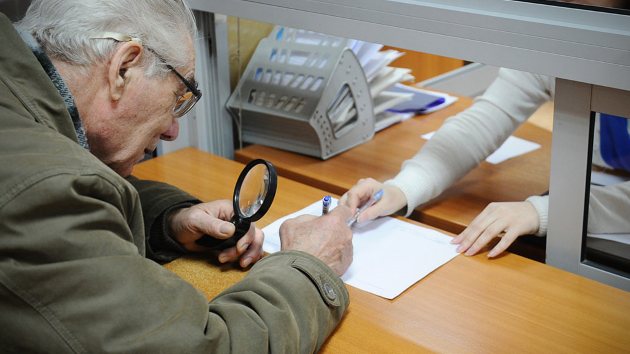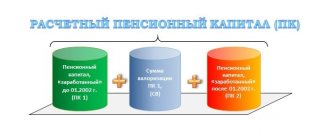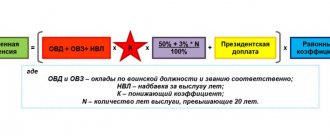Is it profitable for pensioners to work officially? Many people became interested in this issue after the pension reform, since in accordance with Federal Law No. 350-FZ of October 3, 2018, increased indexation of pensions will be carried out.
Insurance pensions will increase on average by 1 thousand rubles per month or 12 thousand rubles per year. But this fact only applies to non-working pensioners. Those people who remain officially employed after official retirement do not receive indexed pension supplements. Let's look at the statistical data (Table 1).
Benefits of working in retirement
The most important and undeniable advantage is receiving a salary.
It is difficult to live solely on a pension, the average amount of which varies from 12 to 14 thousand rubles. You have to deny yourself a lot, and sometimes you don’t even have enough for the most necessary things. Advantages of employment for a pensioner:
What additional payments are due to a pensioner for grandchildren in 2020 and the conditions for receiving sick leave?
- The employer transfers insurance contributions from the salary to the Pension Fund, which in the future will provide the basis for recalculating the pension payment. This allows you to increase its size thanks to pension points (one point 81.49).
- A pensioner who works has the right to take paid sick leave. During his illness he receives benefits.
- You can take paid parental leave. In accordance with social and labor legislation, not only the mother, but also any relative has the right to receive benefits for child care up to one and a half years old.
When the baby's mother has a high salary, it is not profitable to lose it, so she can go to work. And grandparents who officially work but receive much less wages can go on parental leave with benefits.
- A retired working person receives all tax deductions, like other employees, for whom a 13% income tax is transferred. We are talking about a property deduction, a social deduction for drug treatment, the purchase of medicines, tuition fees or pension/health insurance.
Pensioners who continue to work enjoy a number of additional benefits compared to other employees. Thus, they have the right to receive administrative leave for up to two weeks, financial assistance, etc.
How is a pension for a working pensioner indexed?
Indexation of pensions for working pensioners is not planned for 2020, so it is not entirely correct to talk about increasing this indicator. If a person does not work, then from February 1, 2018, his pension was increased by 3.7%.
For people who work, the increase in payments will apply from August 1, 2020 due to the fact that their work experience will increase. At the same time, for a certain period of time, the pensioner can refuse to receive payments in order to then increase the coefficient he already has. As a result, the pension after dismissal of a working pensioner will be slightly larger.
A working pensioner incurs certain losses in payments
Many people are interested in whether it is possible to work and receive a pension at the same time? Can working pensioners expect an increase in pensions? The answer to these questions is twofold. You can work, but you need to understand that there will be certain losses in pension payments. Current legislation “believes” that if a person can provide for himself independently, then he should not be in full care of the state, therefore the amount of pension payments will be partially reduced. There is no point in thinking about increasing pensions for working pensioners in the near future.
What other types of assistance are available for older people?
The pension after dismissal of a working pensioner may depend on how quickly he applies for recalculation. Practice shows that this issue is resolved within a month at most; accordingly, an increase in payments upon retirement is guaranteed.
Do not forget that from April 1 of this year the social pension will increase, and this change will affect all people who are supported by the state, regardless of whether they work or not. Indexation is carried out based on the increase in the cost of living over the past year.

Pensions are expected to increase this year
As for the indexation of pensions paid to beneficiaries, nothing changes here; the payment they receive is indexed only by the amount of inflation over the past year. For 2020, this figure was 3.2%; accordingly, payments will increase by approximately the same amount.
People over 80 years of age can receive an additional payment. In this case, you can count on a certain amount, which is called “care payment”. The supplement will differ from person to person depending on what fixed part of the pension the person is entitled to.
We also recommend reading the article on the topic “What can retirees expect in 2020?”
You shouldn't look up to the Swedes
There is also scientific data confirming the only “advantages” of turning an employee into a pensioner. For example, scientists at Stockholm University in Sweden proved several years ago that after retirement, symptoms of depression, which are present in a quarter of older workers, are significantly reduced.
But here, perhaps, we should take into account that the Swedes are a special people in terms of various depressions there. The local version of socialism greatly spoiled the descendants of the Vikings - “bad mood” even among younger people is the basis for issuing them “sick leave” in almost the same quarter of the total morbidity.
Indeed, when social legislation is so humane, why not give yourself a week or two of additional vacation under the pretext “I don’t feel much joy from life.”
Maybe that’s why scientists from other countries note other consequences of retirement that are completely different from the Swedish experience. For example, last year, French researchers, based on many years of observation of half a million compatriots, noticed that:
Each additional year spent at work beyond retirement age reduces the risk of dementia and Alzheimer's disease by 3.2 percent.
And in general, no one has canceled the statistics from the 80s of the last century: after leaving work, the mortality rate from heart attack doubles. In any case, in the first year, when the pensioner gets used to his new state.
Their spouses may also suffer from the retirement of their “beloveds.” So, in the same 80s, the American doctor Charles Clifford Johnson even coined a special term - “retired husband syndrome.” Due to the fact that the spouses of retired men told him:
- "I'm going crazy"
- "I want to scream"
- "You're under my feet all the time."
It turns out that when a man and a woman live together for a long time, they need to take a break from each other, which is greatly facilitated by being at work.

Death rates from heart attacks double after leaving work
The “retired husband syndrome” was especially illustrated by a recent study in which 840 Japanese women took part. After the start of the “well-deserved rest” of their spouses, the ladies from the Land of the Rising Sun began to experience feelings that were not resort feelings:
- forty-seven percent of them complained of emotional problems
- 41 percent experienced stress
- 23 percent were depressed
- 16 percent suffered from sleep problems.
Moreover, with each subsequent year, the condition of the participants worsened by 6-14 percent.
But you shouldn’t think that the way out of this situation for representatives of the “fair sex” could be their own work outside the home. That is, this is really a way out, but only for women.
Because it turns out that if a husband retires before his wife, he quickly becomes depressed and begins to feel worse and worse. Even if objective health indicators do not indicate real deterioration.
This condition is called “hypochondria” - an anxious fixation on:
- body sensations
- thoughts about certain diseases that often do not exist.
But as soon as life partners really began to accompany the heads of families in their daily pastimes, the situation immediately improved. True, as follows from the above facts, it is far from having harmless consequences for the women themselves.
If the Pension Fund finds out
The pensioner is responsible for providing accurate information. He is obliged to report to the fund all information that entails a change in the size of the insurance pension or termination of payment. You cannot delay this moment; you need to inform the next working day after the occurrence of the circumstances, for example, after getting a job.
Legal entities, in turn, are also responsible for the truth of the information they provide to the fund. If an employee or employer hides the fact of employment and the secret becomes apparent, they will have to compensate for the damage caused.
For example, a pensioner, while unemployed, received a federal social supplement. Then he got a job, did not report this to the Pension Fund, and the additional payment remained. When the fact of overpayment is proven, he will have to return it to the Pension Fund.
Another example. A full-time student received a survivor's pension and a federal social supplement up to the level of the pensioner's subsistence level. If he decides to get a job in parallel with his studies and initially hides this from the Pension Fund, later he will have to return the overpayment to the fund, that is, a social supplement to his pension.
“The Pension Fund does not fine anyone,” a representative of this agency emphasized in a telephone conversation, “we are just recalculating. It is possible that an unofficially working pensioner may be fined by some other supervisory authorities, if this is within their competence.”










